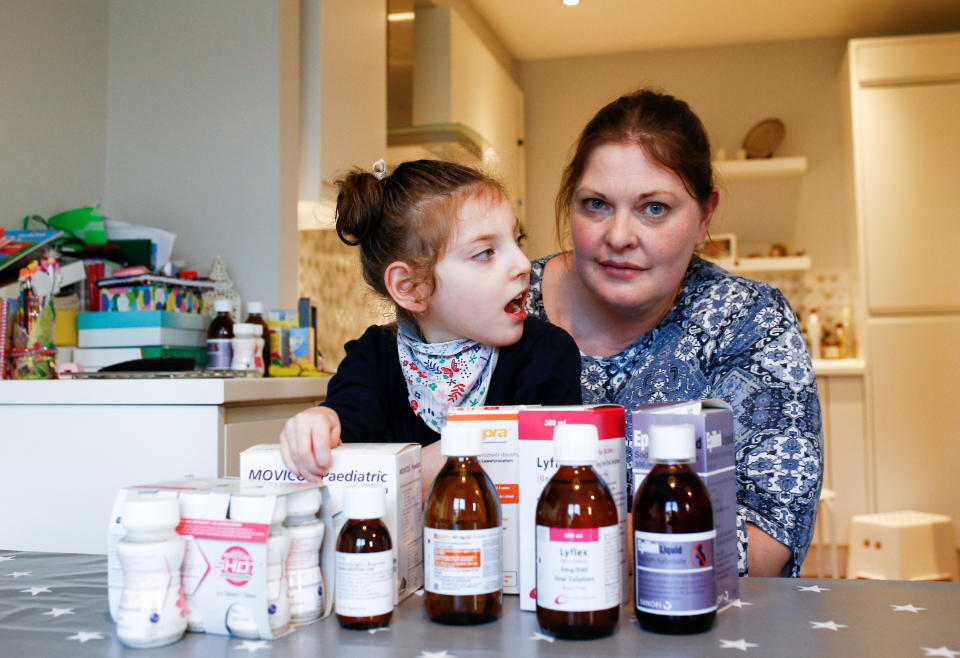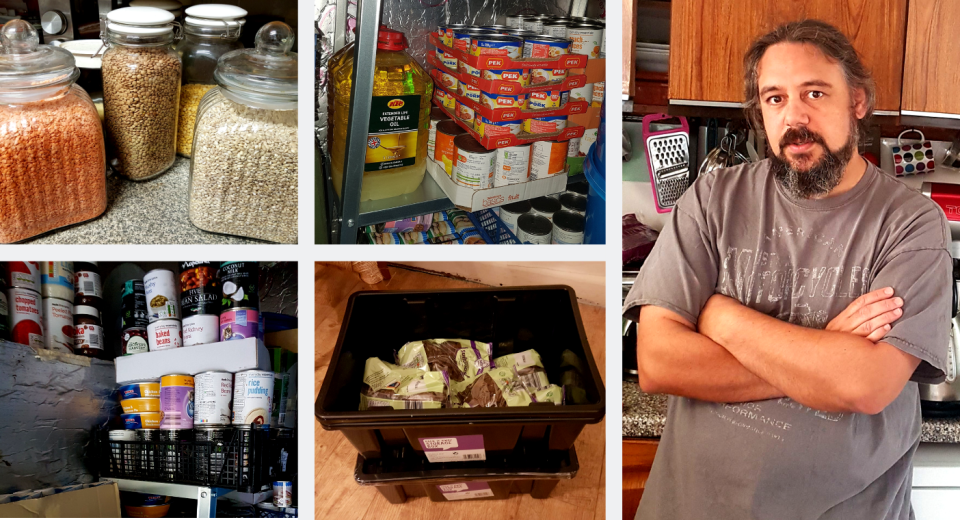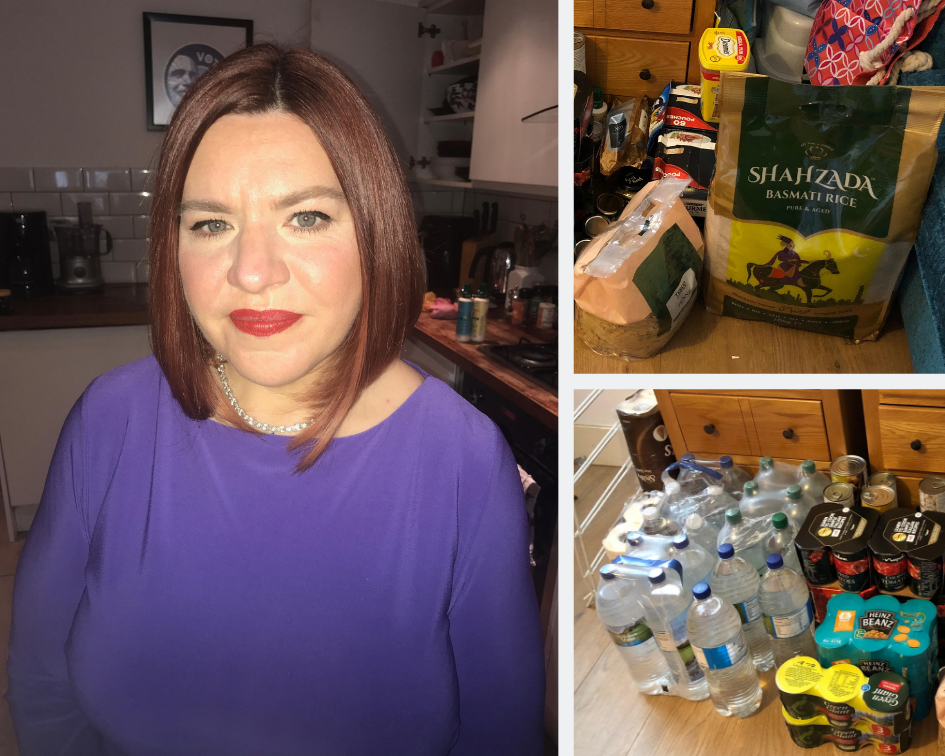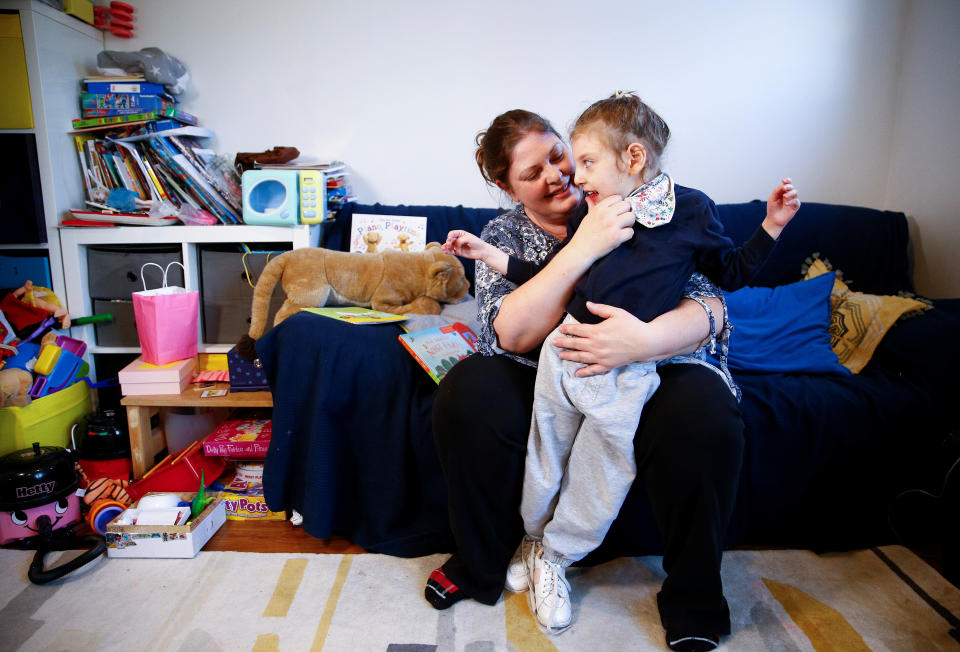Meet the ordinary Brits stockpiling at home for a no-deal Brexit

Growing numbers of ordinary Brits are stocking up on extra food, medicine and other supplies, as fears grow of huge disruption if Britain leaves the EU without a deal in October.
Food, fuel and medicine shortages are possible as well as heavy and sustained delays at borders for UK imports and exports, according to a leaked ‘Operation Yellowhammer’ government report published on Sunday.
A survey last week suggested almost one in five people had begun stockpiling, buying hundreds of pounds of extra goods and spending an estimated £4bn ($4.8bn) overall so far.
Yahoo Finance UK spoke to four members of the public about their fears of shortages from vital children’s medicines to toilet roll, with some buying hundreds of tinned foods they could survive on for months.
Melvin Burton, 46, Ely: ‘I probably have about four or five months of food’

Melvin Burton, an IT software tester, said he had several hundred tins, jars and other supplies at his home in Ely, enough for his family to survive on for “four or five months.”
He began stocking up six months after the EU referendum in 2016, and warned it was “complacent” to rely on the government and businesses for essential supplies.
With little UK advice available then, he turned to prepping guides from the US, but found they were mainly aimed at surviving “the apocalypse or nuclear war.”
Burton, who lives with his wife and eight-year-old daughter, even briefly consulted a Mormon survival guide.
READ MORE: Brits spend ‘£4bn’ stockpiling ahead of no-deal Brexit
But with much of the US advice online focused on “storing food for 20 years,” he decided to just buy long-life versions of his usual go-to items — lentils, tuna, beans, peas, and other canned foods.
He also imported tools from the US to start canning his own vegetables, and said he expected his family would eat most of the food anyway even if it wasn’t needed.

Burton bought a ‘shattaf’ shower head in case loo roll supplies run out, as well as paracetamol and antihistamines.
“I did a risk assessment and wrote down what might happen,” he said. “If trucks are held up at borders and that means any shortages on the shelves, there could be panic buying and then nothing on the shelves.”
“I will probably end up giving some of it to a foodbank if we end up remaining,” he added.
Emma Burnell, 44, East London: ‘If I’m wrong, I just look a bit silly but I’ve done my November shop’

Emma Burnell, 44, from Leyton in east London, said she hoped Brexit supporters were right that no-deal would be less disastrous than most experts predict.
“I know people more optimistic about Brexit than I am. I don’t want to be right - I just want to be prepared if I am,” she said. “If I’m not, I just look a bit silly but I’ve already done my November shop.”
The podcast host and consultant for the Labour for a People’s Vote campaign said she had spent around £150 stocking up on ingredients for her favourite Slimming World recipes.
READ MORE: Nestle warns Brexit means ‘major challenges’ for Britain’s food and drink industry
She has extra supplies of tomatoes, tinned potatoes, water, rice, and various other tinned and frozen vegetables, and plans to buy frozen chicken closer to Brexit.
She said being a freelancer also made her particularly worried about her income after a no-deal Brexit. “If the economy falls off a cliff, I’m probably in quite a lot of trouble. I could lose my home.”
Jo Elgarf, 43, south-west London: ‘One day without my daughter’s medication could be catastrophic’

Jo Elgarf, 43, said she had serious fears over her five-year-old daughter’s medicines after Brexit, amid widespread reports of potential disruptions to vital supplies.
“I have a daughter, Nora, with polymicrogyria and severe epilepsy. Her meds are imported and one day without could be catastrophic,” she told Yahoo Finance UK.
The stay-at-home mum said she had built up around a month of supplies of tinned foods, pasta and rice, “just so if there are shortages I have enough to see me through.”
She said she felt more aware of risks because of her experiences working in food manufacturing and understanding supply chains.
READ MORE: Brits feel more insecure at work than at any time since the Brexit vote
The government announced a £25m contract this month to deliver medicines to Britain and is working to build up supplies, but Elgarf said it did not reassure her about Nora’s liquid medication. “£25m is nothing,” she added.
She has also got involved in an online network of people with similar concerns, helping to run a Facebook group called the 48% Preppers.
But she said she hoped she would never need the supplies: “I hope people laugh at me for worrying too much, and I am wrong.”

Helena Adams, 27, Cardiff: ‘I won’t be scrapping over the last loaf of bread in Asda’
“I’ve got more dog food than human food,” said Helena Adams, who has more than a year of dog food supplies and three months of stocks for herself.
She said she was most concerned about her beloved pet Charlie: “The government is clearly not going to prioritise dog food at the ports.”
The 27-year-old said some people she knew saw her stockpiling of around three months’ worth of food as “ridiculous,” but added: “I’ve bought early so I can insulate myself against the worst of the shocks, and it removes a level of worry.”
She lives on her own with her dog and a lodger in Cardiff, and said the sight of her gradually building up stocks had encouraged her lodger to do the same.
READ MORE: More than half of farms ‘could go out of business’ on a no-deal Brexit
Her family have also begun stockpiling, with her dad stocking up for her elderly grandmother too.
Adams said her fears were because there were “so many unknown unknowns,” and she expected the public to panic if stocks of some foods run low.
“Even things we produce mainly in Britain, if one type of imported vegetable runs out, then people will start swapping to other British ones - then demand might affect supply of that too,” she said.
“I won’t be scrapping over the last loaf of bread in Asda. I don’t think I would fare very well at that.”

 Yahoo Finance
Yahoo Finance 